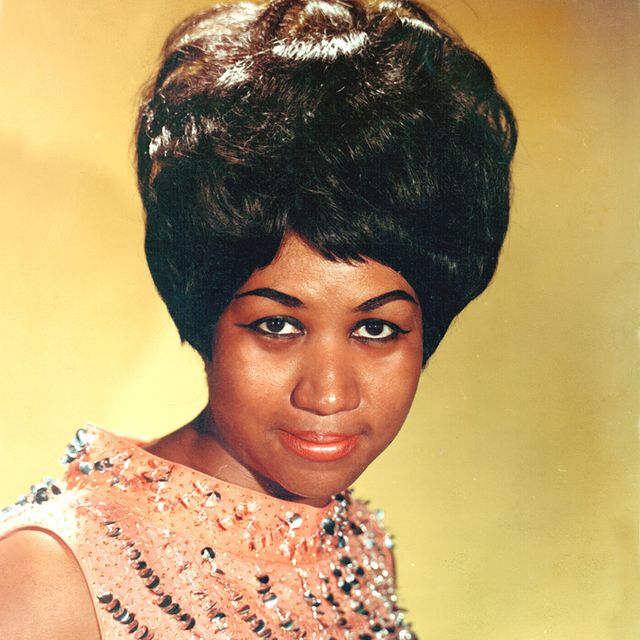Aretha Franklin, the legendary Queen of Soul, and Patti LaBelle, a force in R&B and rock, shared a friendship marked by mutual respect and an understanding of the unique challenges faced by artists of their caliber. Despite media-fueled perceptions of rivalry, their relationship transcended public scrutiny, defined by camaraderie and profound admiration. As the music industry has evolved, their stories reveal both the brilliance of their artistry and the sometimes-dark realities of the music world.
A Friendship that Spanned Decades
Aretha Franklin and Patti LaBelle’s friendship began in the early 1960s in Philadelphia, where both artists were navigating the complexities of the music scene. Despite frequent headlines suggesting discord between them, particularly surrounding their 2014 interaction at the White House, LaBelle has consistently clarified that the two shared a strong, respectful bond.

Reflecting on that moment, LaBelle explained that Franklin simply wasn’t feeling well that day and later contacted her, affirming that their connection remained solid. She further recounted that Franklin expressed an interest in collaborating on a music project and even discussed a possible business partnership with Walmart, where LaBelle’s famous sweet potato pies are sold.
In interviews, LaBelle spoke of Franklin as a close friend and an inspiration, describing her as a musical hero whose legacy is unparalleled. At the Kennedy Center Honors in 1994, LaBelle performed “Ain’t No Way,” one of Franklin’s iconic songs, as a tribute. This performance encapsulated the mutual respect between the two artists, as Franklin specifically requested LaBelle’s rendition of the song. Such moments underscore the genuine affection they held for each other, away from the spotlight’s glare.
Life in the Limelight and the Dark Side of the Industry
Both Franklin and LaBelle navigated the pressures and exploitations of the music industry, particularly in an era when Black artists were often marginalized. Franklin, a pioneer for generations, came from a background that required resilience.
She learned early on to demand respect from an industry that historically undervalued Black performers. Known for insisting on cash payments before taking the stage, Franklin’s approach reflected her caution in dealing with promoters and industry executives. This business acumen became a defining characteristic of her career, influencing LaBelle and others to take greater control over their finances.

However, Franklin’s relationship with the music industry was not without challenges. She frequently clashed with executives over creative control and financial arrangements, most notably with Clive Davis. Franklin, along with other artists, occasionally hinted at the emotional toll associated with such corporate power.
A notable example is singer Phyllis Hyman, who struggled with depression and substance abuse before her tragic suicide in 1995. Franklin, who was close to Hyman, implied that Davis’s pressure on Hyman may have contributed to her demise, though this remains speculative.
The Legacy of Whitney Houston and Clive Davis’s Controversial Role
The death of Whitney Houston in 2012 further highlighted Davis’s polarizing influence. When Houston passed on the eve of the Grammy Awards, Davis chose to proceed with his pre-Grammy party, a decision that sparked outrage from artists such as Chaka Khan. Houston’s death in the same hotel where the party took place added a somber note to the evening, but Davis continued with the event, drawing criticism for what many saw as a callous response to the loss of one of his most successful protégés.

Houston’s passing, and Davis’s alleged reaction, strained relationships within the industry. Khan, a longtime friend of Houston, withdrew from a Grammy tribute to her, stating that it was too painful to perform so soon after the tragedy. This choice further strained Khan’s relationship with Davis, leading to ongoing tension. These incidents reflect the broader complexities artists face within the music industry, where the pressure to maintain appearances and sustain success can often clash with personal well-being.
Franklin’s Influence on LaBelle and the Importance of Legacy
Aretha Franklin’s pragmatic approach to her career deeply influenced Patti LaBelle. Franklin’s insistence on being paid upfront for performances and her attention to contractual details underscored her keen awareness of how quickly the industry could take advantage of an artist’s success. LaBelle admired Franklin’s ability to command respect and appreciated her lessons on financial independence. In 2015, Franklin delivered one of her last iconic performances at the Kennedy Center Honors, where her rendition of “(You Make Me Feel Like) A Natural Woman” brought then-President Obama to tears. Known for her uncompromising standards, Franklin consistently set the bar high, both musically and in how she conducted her business affairs.
LaBelle, too, has demonstrated resilience and adaptability throughout her career. From her early days with The Blue Belles to her success as a solo artist, she has remained a dominant figure in R&B and soul. LaBelle’s career trajectory mirrors Franklin’s in that both women reinvented themselves while staying true to their roots. Their achievements paved the way for subsequent generations of female artists, providing a blueprint for how to thrive in a demanding industry.
The Lasting Impact of a Shared Journey
The legacy of Aretha Franklin and Patti LaBelle is evident in the profound influence they continue to exert over contemporary music. Beyond their musical contributions, their stories highlight the challenges artists face in balancing fame with personal integrity. Both women were icons not only for their vocal talent but also for their resilience in the face of adversity. They remind us that success in the music industry often comes at a cost, but with strength, talent, and a sense of purpose, it is possible to forge a legacy that transcends the challenges.
The narrative of Franklin and LaBelle is a testament to friendship, respect, and the determination to create art on one’s own terms. Their impact on R&B and soul music is indelible, and their journeys inspire countless artists to pursue their own paths with the same level of courage and authenticity. Franklin’s passing in 2018 marked the end of an era, yet her lessons continue to resonate, particularly with those, like LaBelle, who understood her best. Together, they redefined what it means to be a legend, reminding us all of the power of resilience, grace, and, above all, soul.





